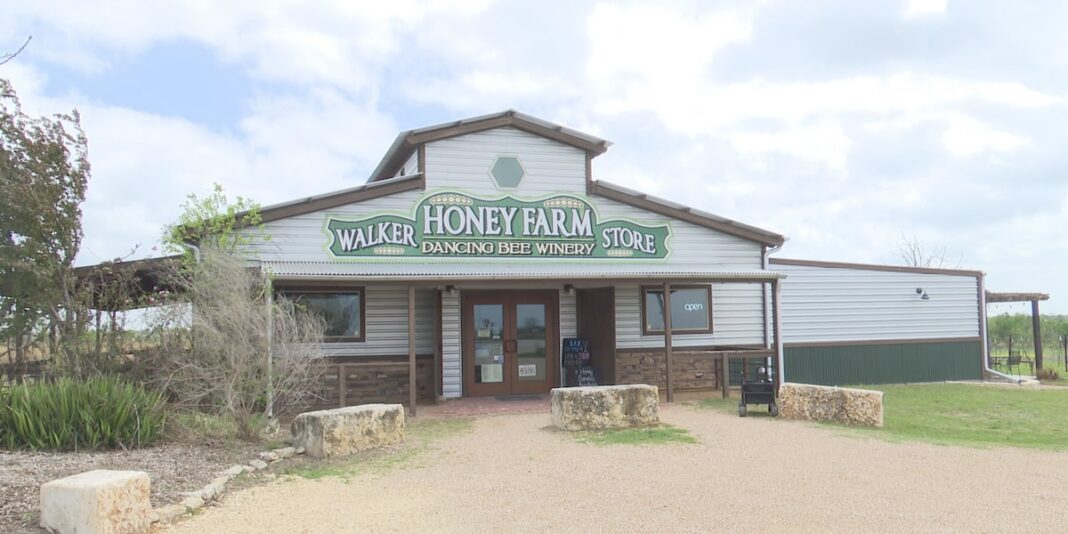## The Buzz on Walker Honey Farm: 95 Years of Sweet Success For most of us, honey is a sticky treat enjoyed in tea or drizzled on toast. But for the Walker family, it’s a legacy, a passion, and a testament to the enduring power of hard work and a love for the land. This year, Walker Honey Farm celebrates 95 years of buzzing with life, a testament to the enduring spirit of American craftsmanship and the simple sweetness of nature. Join us as we delve into the story of this family-run business, exploring their journey from humble beginnings to becoming a beloved local institution, and discover the secrets behind their 95 years of sweet success.
New Owners and Management

As Walker Honey Farm celebrates 95 years of sweet success, the farm has welcomed new employees as owners, bringing fresh perspectives and helping to manage the business. This strategic move has allowed the farm to adapt to the changing market conditions and ensure long-term success.
Clint Walker III, the current owner and operator of the farm, recognized the need for new blood to carry on the legacy of his grandfather, Clint Walker Senior, who founded the farm during the Great Depression. The new owners have brought new ideas and expertise, which have been instrumental in diversifying the farm’s products and revenue streams.

Challenges and Adaptation
The Struggling Beekeeping Industry
The beekeeping industry has been facing significant challenges in recent years, with farmers losing a substantial number of their colonies at an alarming rate. According to Clint Walker III, farmers are losing around 65% of their colonies, which is unsustainable for any agricultural industry.
This crisis has resulted in financial strain on beekeepers, with many struggling to stay afloat. The industry’s struggles have far-reaching implications, not only for beekeepers but also for the environment and food production.

Diversification and Resilience
Walker Honey Farm has not been immune to these challenges, but the farm has adapted by diversifying its products and revenue streams. In 2011, the farm opened a winery, producing mead, a wine made from honey. The farm has also planted a small vineyard and hosts events on the farm.
By diversifying its products, Walker Honey Farm has reduced its dependence on beekeeping, making it more resilient to the challenges facing the industry. The farm’s ability to adapt has been crucial in sustaining its success over the years.

The Future of Beekeeping
The struggles facing the beekeeping industry have significant implications for the future of beekeeping. If the industry continues to decline, it could have devastating consequences for food production and the environment.
Walker Honey Farm’s efforts to sustain its success are crucial in ensuring the long-term viability of the beekeeping industry. The farm’s commitment to beekeeping and its willingness to adapt to changing market conditions serve as a model for other beekeepers.

Practical Lessons and Implications
Diversification and Risk Management
Walker Honey Farm’s decision to diversify its products and revenue streams serves as a valuable lesson for businesses. Diversification is essential in mitigating risk and ensuring long-term success.
By reducing its dependence on a single product or revenue stream, a business can weather economic downturns and adapt to changing market conditions. This approach has been instrumental in Walker Honey Farm’s success and serves as a model for other businesses.
Community Engagement and Recognition
Walker Honey Farm’s recognition by the Texas Beekeeping Association and District 24 State Senator Pete Flores’ office highlights the importance of community engagement and recognition in promoting a business and its values.
By engaging with the local community and being recognized for its contributions, a business can build trust and credibility, which are essential in building a loyal customer base.
Adaptation and Innovation
Walker Honey Farm’s ability to adapt and innovate in response to changing market conditions serves as a valuable lesson for businesses. In today’s fast-paced business environment, adaptation and innovation are essential in staying ahead of the competition.
By embracing change and being willing to adapt, a business can stay relevant and sustain its success over the long term. Walker Honey Farm’s 95-year history is a testament to the importance of adaptation and innovation in achieving long-term success.
Conclusion
As we reflect on the remarkable 95-year journey of Walker Honey Farm, it becomes clear that the institution has not only survived but thrived, consistently producing high-quality honey and promoting sustainable beekeeping practices. The article highlights the key milestones in the farm’s history, from its inception in 1927 to the present day, showcasing its commitment to innovation, community engagement, and environmental stewardship. The farm’s adaptability in the face of changing market conditions and consumer preferences is a testament to its founders’ visionary leadership and the dedication of the Walker family and their team.
The significance of Walker Honey Farm extends beyond the realm of local food production, as it has played a pivotal role in shaping the national conversation on sustainable agriculture and the importance of pollinators. The farm’s emphasis on integrated pest management, habitat restoration, and education has set a new standard for the industry, inspiring a new generation of beekeepers and food producers. Furthermore, the farm’s commitment to quality, transparency, and fair labor practices has earned it a reputation as a leader in the artisanal food movement.

